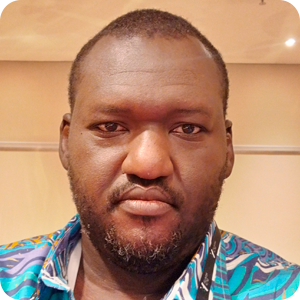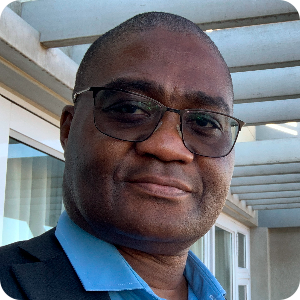After several years marked by significant challenges for the international development sector, such as aid cuts by the U.K. and Germany, the wars in Ukraine and Gaza, and multiple natural disasters, nobody expected new turmoil. However, the end of January 2025 brought a fresh crisis as U.S. President Donald Trump entered the Oval Office in the White House and signed a number of executive orders. Two orders were particularly disastrous for the aid sector: a decision to freeze most U.S. foreign aid for three months, and the United States’ withdrawal from the UN World Health Organization (WHO). Although the Trump administration later exempted food and emergency humanitarian aid from the effect of its order, the consequences of this decision are already being felt in some of the most vulnerable communities globally. Aid workers fear that even if aid is resumed after the 90-day program review period, the interruption will have lasting consequences. Learn more about the impact of these decisions and how to be better prepared for all possible outcomes.
Key Takeaways:
- One of the first executive orders signed by Donald Trump on the first day of his second term as the U.S. President temporarily halted all American aid to countries around the world, currently channeled mainly through the United States Agency for International Development (USAID).
- According to experts, the consequences of this order will be significant for programs that play a crucial role in education, health, access to basic resources, and local economic development.
- Beyond international aid, this funding disruption could signal a turning point in the United States’ position as a reliable partner on the global stage. The impact on aid organizations will be immediate, requiring rapid adaptation of budgets and programs.
- Regarding Trump’s decision to withdraw the USA from the WHO, experts predict that health workers could face reduced access to these global resources, limiting their ability to stay up to date on best practices, new research, and emergency response strategies.
DevelopmentAid: How will the 90-day pause in foreign US development assistance and USAID’s stop-work order affect the international development sector?

“The Trump administration’s decision to suspend USAID funding, with the exception of Egypt and Israel, could seriously impact future relations between states. USAID, a key partner in economic development and humanitarian aid, operates based on the memorandum of understandings that commit state parties to multi-year projects. By canceling these commitments through a unilateral executive order, Washington is sending a contradictory signal, weakening the trust of partner governments and potentially making them reluctant to engage in future collaborations with the agency. This strategic rupture undermines cooperation dynamics and the United States’ international commitments. The consequences will be significant for programs that play a crucial role in education, health, access to basic resources, and local economic development, thereby putting in danger the well-being and stability of vulnerable populations. USAID’s withdrawal will create a void where it once played a central role, forcing partner countries to bear unexpected costs or abandon sustainable development goals. Moreover, local staff and partner businesses are now facing considerable uncertainty, further exacerbating the human and economic repercussions of this decision. Beyond international aid, this rupture could signal a turning point in the United States’ position as a reliable partner on the global stage.”

“While one might hope that Trump’s sound and fury is just bluster, his second term – with an emphatic mandate and four years of preparation – proves otherwise. The impact on aid organizations will be immediate, requiring the rapid adaptation of budgets and programs. However, in many ways, this mirrors the reallocation of aid during the Ukraine crisis, when professionals demonstrated resilience and adaptability. What troubles me more is the stark negativity of these actions – rejecting global climate mitigation, stepping back from shared health challenges, and promoting unilateralism – without offering meaningful alternatives. Global problems demand collaboration, and this retreat undermines efforts to address shared crises. What is at stake now is more than funding or policy; it is the principle of collective action. Multilateral organizations must face the reality that they have failed to persuade the voters of their largest donor. They must evolve to decisively prove that collaboration delivers better outcomes than isolationism. The challenge is enormous: can these organizations regroup, innovate, and show that global problems are best solved together? To do so, they must confront their own deeply entrenched bureaucracies, where inefficiency and poor management often go unchecked under the guise of moral authority. Their response will not only determine the future of international development but also whether cooperation can overcome the growing tide of division and self-interest.”

“Indeed, for a few days now, programs funded by the United States President’s Emergency Plan for AIDS (PEPFAR) have been stopped. The impact is felt on several levels:
- For health programs, many beneficiaries (for example, people on antiretrovirals (ARVs)) are in danger if funding is not renewed because they are exposed to ARV shortages.
- All people working on these programs find themselves unemployed without knowing when they will return to work, which is stressful for them and therefore has a big psychological impact.
- Several construction sites or programs were stopped overnight without arrangements being made to ensure even a minimum of service.
- This leaves beneficiaries who are already suffering from many issues to continue to suffer.
- It is also a big blow to the morale of people and development agents which can affect their mental health.”
DevelopmentAid: How will the withdrawal of the United States from the World Health Organization (WHO) affect the international development sector?

“In 2025, the impacts of the United States decision to withdraw from the World Health Organization (WHO) will be felt globally especially. Although the 46th president reversed the withdrawal early in his tenure, the long-term effects of this action are expected to be evident if the action to withdraw will be cemented. The WHO plays a vital role in providing training, technical expertise, and support for health professionals worldwide. If the U.S. withdraws from the WHO, health workers could face reduced access to these global resources, limiting their ability to stay updated on best practices, new research, and emergency response strategies. The withdrawal also will strain U.S. relations with many nations, especially allies in Europe, who viewed the move as a retreat from international cooperation in 2020. This diplomatic fallout will persist into 2025, which would likely make it harder for the U.S. to regain trust in multilateral health efforts. Additionally, the financial impact will be substantial; as the largest contributor to the WHO’s budget, the U.S.’s departure will leave a gap in funding for vital programs, especially in third-world countries.”
See also: US Aid Freeze: Immediate Effects of the Executive Order | DevelopmentAid Dialogues

“On January 20, 2025, for the second time in his lifetime, the newly sworn-in President of the United States signed an executive order pulling the country out of the WHO. This was received with shock, especially by those who were not following the campaign leading up to his election as the 47th President of the U.S.. This should not come as a surprise to the WHO and I expect that they anticipated this development, coming from the events following the declaration of COVID-19 as a pandemic in 2020. With the clear understanding that the U.S. Congress has to approve such a decision, the need for a year before such a decision can take effect, the requirement for full payment of dues for that year, and the readiness of the WHO hierarchy to engage the new government to discuss issues of concern, there is sufficient time for the WHO and other global governmental and non-governmental bodies to put measures in place to mitigate the impact this decision would have on global and national health. Most importantly, there is adequate time to use global health diplomatic channels to convince the new leadership at the White House to change their mind. It must be noted, however, that the decision has a threat to global and national health safety, especially in middle- and low-income countries who are the main beneficiaries of U.S. funding through WHO. The announcement also mentioned the withdrawal from the pandemic treaty accord that is yet to be agreed and other WHO-led global efforts to prevent, detect and respond to future global threats such as the ongoing threat from bird flu. This could reverse hard-won progress in combating infectious and non-communicable diseases and addressing the social determinants of health globally. The U.S. would also cede its position as a global health leader should this be carried out, with consequences in global health diplomacy. It is my candid view that all is not lost yet, and we have ample time to mitigate the impact of this decision and most likely prevent the U.S. from leaving the WHO. The U.S. is undeniably a global leader in health and will not sacrifice this enviable position for any home political advantage.”
See also: Supporting US organizations: up to 90 days of free access to tenders and grants
President Trump’s latest orders will significantly impact the labor market with expected job cuts, displacements, and relocations. In the highly competitive job market of the international development sector, having access to the right tools and resources is like having aces in hand. With DevelopmentAid’s Individual Professional Membership, members can explore thousands of job openings across different sectors and filter these by location, years of experience, contract type, and more. Additionally, they will gain access to tenders and grants for individuals, donor profiles, salary trends, and other valuable insights. If no job seem to be of interest, experts can always submit their CVs directly to organizations they are interested in. Through the DevelopmentAid platform, they can connect with over 200,000 registered organizations with just a few clicks.

